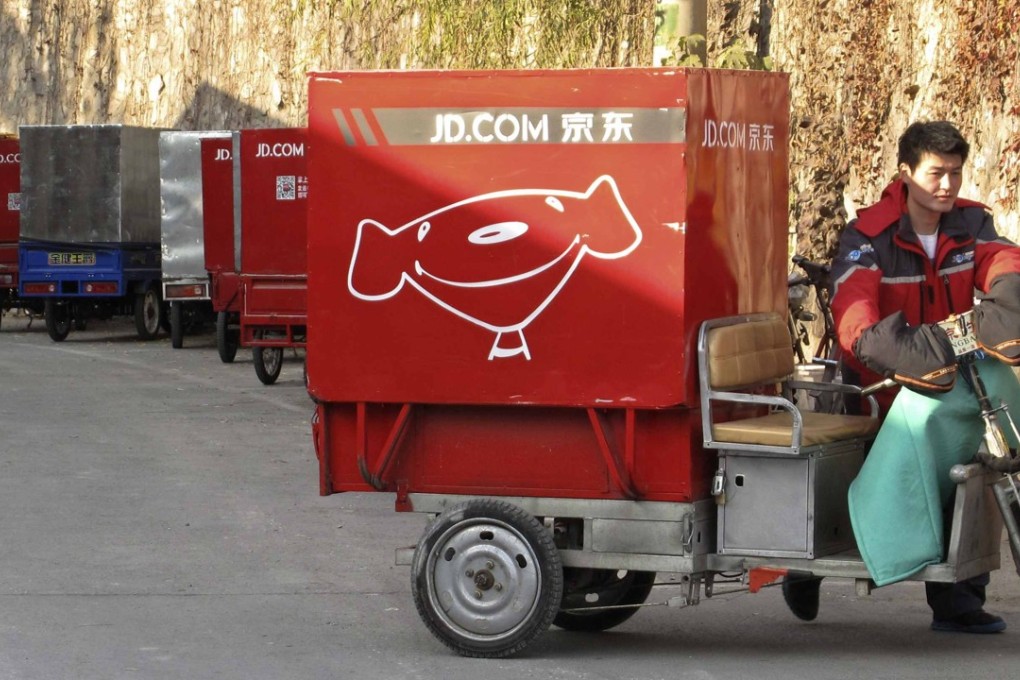From drones to self-driving vans, China’s version of Amazon, JD.com, continues drive for faster, human-less deliveries
Chinese e-commerce giant has teamed up with Chinese carmakers SAIC Maxus and Dongfeng, to conduct research on autonomous vans

JD.com, the Chinese e-commerce giant, is to partners with two local carmakers in researching what it claims will be the country’s first autonomous delivery vans – its latest effort to use unmanned vehicles to increase delivery efficiency across the world’s largest online shopping market.
Often referred to as China’s answer to Amazon, the Nasdaq-listed JD.com said it has jointly researched two models of autonomous light electric vans with SAIC Maxus and Dongfeng Motor, respectively, which would operate between the company’s distribution centres and future delivery stations in urban areas.
Without specifying when or where the first vans could actually be put into service, JD.com said the SAIC Maxus electric vehicle – equipping with radar, sensors and positioning systems – has already conducted successful tests on automatic route planning, automatic overtaking, and self-parking functions.
“Our extensive in-house logistics network provides the ideal real-world scenario in which to test autonomous vans,” said Wang Zhenhui, CEO of JD Logistics.
“Working with our partners, we will continue to enhance our smart logistics and push the bounds of traditional logistics solutions.”
The vans are the latest additions to JD.com’s automated delivery fleet, which includes automated technology-enabled warehouses and autonomous delivery robots that are expected to replace deliverymen in closed areas, such as campuses.